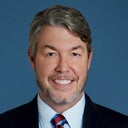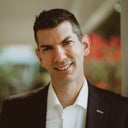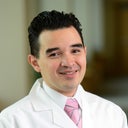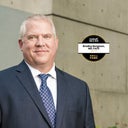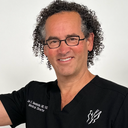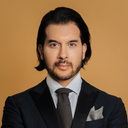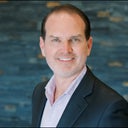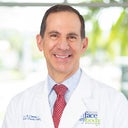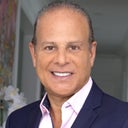NeoGraft was introduced about 5 years ago, and is simply a machine that a physician (or, more likely, a technician) uses to perform the follicular unit extraction (FUE) procedure. It is more or less a motorized, hand-held circular punch, attached to suction. I attended a physician's office in Florida in 2009 for a demonstration of the NeoGraft device. I've been performing FUE procedures since 2003, and I was very interested to see this device. While at this meeting, hosted by the NeoGraft corporation, it was interesting to note that I was the only dedicated hair restoration surgeon in attendance. The others there to see and perhaps purchase the machine were spa owners, obstetricians, several family practice doctors, and a few business managers for doctors who dabbled in cosmetic surgery in general. I was pretty surprised. The graft placement feature of the NeoGraft device with positive pressure is a gimmick, as I asked the head trainer for the NeoGraft corporation to place a graft using this. We were observing an live procedure, and we watched as he tried several times, but was not able to place a single graft with the machine. NeoGraft has done a tremendous amount of marketing, and I see physicians who have never done a hair transplant around the country acquire this machine, piggyback on the marketing done by NeoGraft, and start to offer this complicated, and permanent procedure to the public. In much of the country, the doctor will simply hire a technician (the going rate for a NeoGraft tech in Atlanta is $70/hour) to perform the procedure. It should be noted at this point that hair restoration technicians have the same exact medical training requirements as grass cutters: absolutely none. The physician only need sign the papers and be on the premises. No joke. So, whether using the NeoGraft, or the much more advanced ARTAS robotic hair restoration system, or any other device, including a 50 cent 1mm biopsy punch, it is the experience and dedication of the surgeon and his team that will determine the outcome. Hair Restoration is it's own specialty now. There's a global society (the International Society of Hair Restoration Surgery) and a Board. Choosing a surgeon 100% dedicated to hair restoration is paramount. If "NeoGraft" suddenly appears on a long list of other procedures a physician offers, I would be wary, as it is unlikely that the physician has a full-time, highly-trained team of hair restoration technicians, and is just hiring one of many "hired gun" technicians that will arrive at the office, and do the procedure for $70 an hour. There are hundreds of subtleties and nuances in hair restoration, and assuming that because a physician now offers NeoGraft, in addition to all the other procedures offered, will be competent and excel at hair restoration surgery is simply foolish. Look at the experience and dedication of the surgeon who will be performing the surgery, and make sure technicians are not actually the ones who will be performing the surgery. Also make sure the physician you choose is actually a trained surgeon. The majority of hair restoration "surgeons" are, in fact, not trained in surgery at all, and hold no board certificates in any surgical specialty whatsoever, so examine your physician's credentials carefully. You should feel perfectly comfortable asking for a copy of the surgeon's resume to review. Look for many years of dedication exclusively to hair restoration, not just cosmetic surgery in general.This problem is so rampant and common that the International Society of Hair Restoration Surgery, the global community of physicians practicing hair restoration, issued a consumer alert about this issue. I see patients every month who had a hair restoration performed by a technician with the NeoGraft device presenting to our office asking for help; asking me to repair the unnatural looking hair transplant results. This is often very difficult, and occasionally impossible. Because as we say in this specialty, "the good thing about hair restoration is that it's permanent. The bad thing about hair restoration is that it's permanent." Consult with more than one surgeon, make sure he or she is actually a trained surgeon, and get a feel for who you think will be the best for you. A machine absolutely does NOT guarantee good, or even acceptable results.
